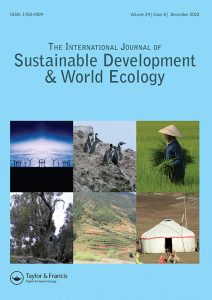ABSTRACT
Questioning both sustainability and universality of development led to a movement of developing alternative indicator sets to provide a more reliable picture about quality of life than conventional economic indicators do. Some of these sets correlate, to a certain extent, with formal (market) economic development while some do not. In this study, I choose one of them, the Happy Planet Index (HPI) and its sub-indicators, to prove empirically the lack of unanimity concerning the correlation between formal socio-economic performance, wellbeing, and sustainability. For this objective, I apply cross-sectional regression analysis for the multitude of 152 countries, using 2019 data, the latest pre-pandemic year where country data are completely available.  The results of the analysis support the hypothesis that correlation between most of the variables is not ubiquitous. However, by splitting the whole multitude into sub-multitudes of countries according to their geographic and cultural belonging, certain significant relationships (sometimes opposite ones) are found, underpinning the importance of geographic and cultural diversity. On the other hand, life expectancy and subjective wellbeing prove to correlate only on a global scale while they are uncorrelated on smaller scales.
The results of the analysis support the hypothesis that correlation between most of the variables is not ubiquitous. However, by splitting the whole multitude into sub-multitudes of countries according to their geographic and cultural belonging, certain significant relationships (sometimes opposite ones) are found, underpinning the importance of geographic and cultural diversity. On the other hand, life expectancy and subjective wellbeing prove to correlate only on a global scale while they are uncorrelated on smaller scales.



